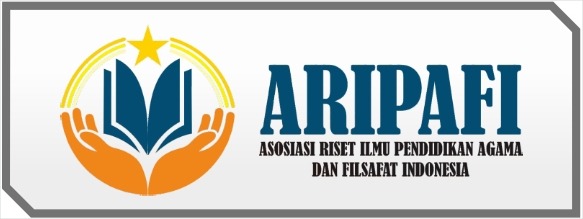Transforming Islamic Education Through Value-Based Leadership: A Narrative Review
DOI:
https://doi.org/10.61194/ijis.v3i2.712Keywords:
Islamic Educational Leadership, Transformational Leadership, Spiritual Leadership, Gender Equity In Education, Policy Reform, Digital Transformation In EducationAbstract
This narrative review explores the dynamics of Islamic educational leadership and its influence on institutional quality and transformation. The study aims to synthesize prevailing leadership models, evaluate their integration with Islamic values, and identify systemic enablers and constraints. Literature was gathered systematically from databases such as Scopus, Web of Science, ERIC, and Google Scholar using keywords including "Islamic educational leadership" and "transformational leadership in Muslim schools." Criteria for inclusion emphasized peer-reviewed sources focused on Islamic education contexts. Results indicate that transformational, spiritual, and charismatic leadership models dominate the Islamic education landscape. These models integrate core Islamic values such as tawhid, amanah, and qiwamah, contributing to effective governance, ethical decision-making, and stakeholder trust. The discussion reveals alignment with global leadership theories, affirming the universal relevance of value-based leadership. However, structural barriers such as gender biases, rigid organizational cultures, and inconsistent educational policies persist as significant impediments. Policy-driven solutions such as value-based leadership training, digital transformation strategies, inter-sectoral collaboration, and affirmative action for women leaders are recommended. These approaches foster inclusive, adaptive, and ethically grounded leadership. This review emphasizes the urgency of reforming Islamic educational leadership through integrated strategies that respond to contemporary challenges while preserving foundational religious principles.
References
Alazmi, A. and Bush, T. (2023). An islamic-oriented educational leadership model: towards a new theory of school leadership in muslim societies. Journal of Educational Administration & History, 56(3), 312-334. https://doi.org/10.1080/00220620.2023.2292573 DOI: https://doi.org/10.1080/00220620.2023.2292573
Amatullah, T. (2024). Exploring female muslim educational leadership in a multicultural canadian context. Religions, 15(2), 215. https://doi.org/10.3390/rel15020215 DOI: https://doi.org/10.3390/rel15020215
Arar, K., Sawalhi, R., & Yilmaz, M. (2022). The research on islamic-based educational leadership since 1990: an international review of empirical evidence and a future research agenda. Religions, 13(1), 42. https://doi.org/10.3390/rel13010042 DOI: https://doi.org/10.3390/rel13010042
Brooks, M., Brooks, J., Mutohar, A., & Taufiq, I. (2020). Principals as socio-religious curators: progressive and conservative approaches in islamic schools. Journal of Educational Administration, 58(6), 677-695. https://doi.org/10.1108/jea-01-2020-0004 DOI: https://doi.org/10.1108/JEA-01-2020-0004
Ezzani, M. and Brooks, M. (2019). Culturally relevant leadership: advancing critical consciousness in american muslim students. Educational Administration Quarterly, 55(5), 781-811. https://doi.org/10.1177/0013161x18821358 DOI: https://doi.org/10.1177/0013161X18821358
Farihin, F. (2023). Perspektif islam dalam kepemimpinan: sebuah studi di lembaga pendidikan islam. Munaddhomah Jurnal Manajemen Pendidikan Islam, 4(2), 252-260. https://doi.org/10.31538/munaddhomah.v4i2.446 DOI: https://doi.org/10.31538/munaddhomah.v4i2.446
Hannan, N., Huda, M., Firdaus, M., Afabih, A., & Musthofa, Y. (2024). Between adherence to madhhab and adaptation to context: fatwās on female leadership in nahdlatul ulama-affiliated islamic higher education institutions. Journal of Islamic Law, 5(2), 269-287. https://doi.org/10.24260/jil.v5i2.2725 DOI: https://doi.org/10.24260/jil.v5i2.2725
Humaisi, M., Thoyib, M., Arifin, I., Imron, A., & Sonhadji, A. (2019). Pesantren education and charismatic leadership: a qualitative analysis study on quality improvement of islamic education in pondok pesantren nurul jadid paiton, probolinggo. Universal Journal of Educational Research, 7(7), 1509-1516. https://doi.org/10.13189/ujer.2019.070704 DOI: https://doi.org/10.13189/ujer.2019.070704
Lahmar, F. (2024). Redefining leadership: the role of spirituality and motherhood in muslim women’s educational leadership. Religions, 15(12), 1565. https://doi.org/10.3390/rel15121565 DOI: https://doi.org/10.3390/rel15121565
Parker, L. and Raihani, R. (2011). Democratizing indonesia through education? community participation in islamic schooling. Educational Management Administration & Leadership, 39(6), 712-732. https://doi.org/10.1177/1741143211416389 DOI: https://doi.org/10.1177/1741143211416389
Purhasanah, S. (2024). The power of principal leadership in boosting school quality. Munaddhomah Jurnal Manajemen Pendidikan Islam, 5(3), 284-292. https://doi.org/10.31538/munaddhomah.v5i3.790 DOI: https://doi.org/10.31538/munaddhomah.v5i3.790
Ridwan, A., Hendra, R., Guillén-Gámez, F., Fauzan, M., Alqhatani, T., Yaqin, L., … & Setambah, M. (2024). Instructional leadership and teacher self-efficacy on job satisfaction: the mediating effect of school climate in indonesian islamic senior high schools. Jurnal Ilmiah Ilmu Terapan Universitas Jambi|jiituj|, 8(2), 732-745. https://doi.org/10.22437/jiituj.v8i2.37023 DOI: https://doi.org/10.22437/jiituj.v8i2.37023
Rusnadi, R. and Hafidhah, H. (2019). Nilai dasar dan moralitas kepemimpinan pendidikan islam. Jurnal Pendidikan Agama Islam, 16(2), 223-244. https://doi.org/10.14421/jpai.2019.162-06 DOI: https://doi.org/10.14421/jpai.2019.162-06
Said, S., Sharif, S., & Abdullah, M. (2023). Unveiling the excellent leadership qualities and practices of principals in islamic schools: a systematic literature review. International Journal of Learning Teaching and Educational Research, 22(9), 43-61. https://doi.org/10.26803/ijlter.22.9.3 DOI: https://doi.org/10.26803/ijlter.22.9.3
Shah, S. (2010). Re-thinking educational leadership: exploring the impact of cultural and belief systems. International Journal of Leadership in Education, 13(1), 27-44. https://doi.org/10.1080/13603120903244879 DOI: https://doi.org/10.1080/13603120903244879
Sholikhah, Z., Wang, X., & Li, W. (2019). The role of spiritual leadership in fostering discretionary behaviors. International Journal of Law and Management, 61(1), 232-249. https://doi.org/10.1108/ijlma-04-2018-0081 DOI: https://doi.org/10.1108/IJLMA-04-2018-0081
Subaidi, S., Komariah, A., Tantowi, A., Munasir, M., Sabban, I., Hartini, N., … & Barowi, B. (2023). Visionary leadership in improving the quality and competitiveness of private islamic primary schools. Journal of Governance and Regulation, 12(2), 66-76. https://doi.org/10.22495/jgrv12i2art6 DOI: https://doi.org/10.22495/jgrv12i2art6
Yusuf, M., Maimun, A., Basri, B., & As’ad, M. (2024). Transformational leadership of kh. yusuf hasyim in preserving traditional islamic education at pesantren tebuireng. Munaddhomah Jurnal Manajemen Pendidikan Islam, 5(4), 383-394. https://doi.org/10.31538/munaddhomah.v5i4.1430 DOI: https://doi.org/10.31538/munaddhomah.v5i4.1430
Scott‐Baumann, A., Guest, M., Naguib, S., Cheruvallil-Contractor, S., & Phoenix, A. (2020). Islam on campus. https://doi.org/10.1093/oso/9780198846789.001.0001 DOI: https://doi.org/10.1093/oso/9780198846789.001.0001
Shah, S. (2015). Education, leadership and Islam. https://doi.org/10.4324/9780203502297 DOI: https://doi.org/10.4324/9780203502297






